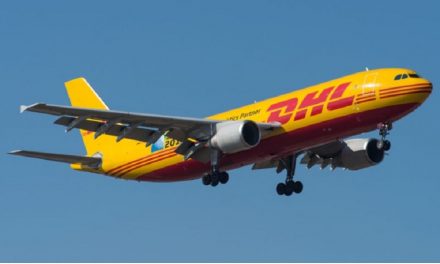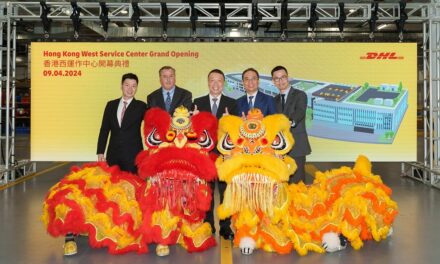
Customs Clearance: can there ever be a level playing field?
John G Callan, Managing Partner, Ursa Major Associates LLC
Mail & Express Review August 2009
PLAYING THE FIELD?
We have been hearing sports team owners, coaches, players and fans call for ‘a level playing field’ for years. Accusations of ‘out-of-bounds’, ‘foul-ball’, and ‘fault’ are shouted from the sidelines and bleachers about the opponents’ unfair style of play. It should be a given that opposing teams play by the same rules, as long as they are playing the same game and competing in the same league. But can a ‘level playing field’ be achieved if the teams are in reality playing in different leagues, governed by different sets of officials?
THE NAME OF THE GAME
In the business of mail and express deliveries, the level playing field metaphor is often used to argue for the same set of rules for posts and express companies. For decades these competitors have indeed played the same basic game of delivery, but in two distinct leagues, primarily letters in one and mostly parcels in the other, kind of like rugby versus American football. Each league has designed its approach to the game according to its ancient customs, rules, and even laws.
Recently, we find teams from one league also playing in the other. The traditional mail carrier, Deutsche Post, now also sports the red and yellow jersey of DHL Express; and the legendary FedEx is dressing its new SmartPost mail team in proprietary purple and orange. Are mail and express leagues coming together?
STILL TWO DISTINCT LEAGUES
Despite the apparent convergence, I contend there are still two distinct leagues. And that is the point. We are unlikely ever to have a truly level playing field since mail and express teams are simply playing in different arenas.
Ecorys addressed barriers to competition in European markets in its February Mail & Express Review article, citing VAT exemption, financial guarantees and interest rates on loans as some of the advantages tipping the playing field in favour of the national postal operators.
I would like to add customs clearance of parcels to this list of home team advantages for the national posts.
CUSTOMS CLEARANCE FAVOURS POSTS
At least in the developed countries, customs officials give deference to clearance of shipments from posts. In fact, savvy shippers have been mailing small parcels containing items of commercial value like garments, spare parts, supplies, even jewellery, through postal operators for years, seldom having them stopped and inspected.
A primary reason for this rather liberal practice is that individual items are not pre-manifested by foreign posts. Customs officials have no idea what to expect in the daily imported mail consolidations they receive.
Phil Warker, Chief, Manifest and Conveyance, Cargo Conveyance and Security, US Customs and Border Protection (CBP), told Triangle’s Americas Conference that the Universal Postal Union (UPU) treaty, and World Customs Organization (WCO) convention, specify unique documentation and procedures for international mail that apply only to posts. Hence postal clearance practices are less restrictive than those for commercial express operators.
Warker also pointed out that there is ‘ no end to end control on mail shipments, unlike couriers’, and ‘CBP makes entry on informal mail entries; no broker is used to conduct customs business’. When mail consignments are compared to those from cargo and express operators ‘the hard copy declarations for mail are generally very poor in quality, and posts assume no liability for incorrect, incomplete or missing documentation’. He concluded that ‘Mail clearance is a manual process based on a hard copy form-there is no advance information on individual shipments to facilitate targeting and risk analysis by CBP’.
To be sure, some posts have claimed the field advantage really tilts towards express operators. As private for-profit entities, express companies can borrow money, invest in technology, set prices, hire and fire more freely, control what they accept from customers, and in some cases carry goods on their own aircraft. And they have no Universal Service Obligation.
But the fact is that express operators must pre-manifest their consolidations at the package detail level. And they employ their own or contracted customs clearance brokers at their expense.
THE DEBATE IN THE UNITED STATES
In the US this inequity was acknowledged in Section 405 of the landmark 2006 Postal Accountability and Enhancement Act (PAEA):
‘With respect to shipments of international mail that are competitive products…that are exported or imported by the Postal Service, the Customs Service and other appropriate Federal agencies shall apply the customs laws…in the same manner to both shipments by the Postal Service and similar shipments by private companies.’
Dennis Delehanty at the US Department of State underlined this in Miami by stating ‘US policy is to promote unrestricted competition in international postal and delivery services’. The law ‘sets out provisions regarding application of US customs laws to international postal and private sector traffic’.
Yet customs laws are still not being applied in the same manner to similar shipments by USPS and private companies. What is going on?
Will Gensburg, Postal Committee Chairman of the Express Delivery and Logistics Association (XLA), raised this question in a letter of February 2009 to the relevant Federal Advisory Committee:
‘XLA has always been greatly concerned with the dichotomy that exists between the concept of regulatory equality for our industry vis-à-vis the United States Postal Service and the hard facts on the ground which have always entailed specific regulatory advantages for the USPS in the areas of customs, security and international UPU related postal regulatory architecture.’
Gensburg went on to say ‘it has been over two years since the PAEA’s inception yet there has been virtually no movement at all to tackle the issues above…’
Gensburg represents an association of more than sixty private express companies that feel disadvantaged. They clearly welcomed the new federal law that would, they hoped, set things right.
I spoke to Will. He thinks the law is clear in calling for a level playing field and that means one field not two. He is concerned that when customs do finally act, they will help the posts preserve their existing regime, even if they bring postal clearance practices up to private clearance procedural standards. There would still be two playing fields.
POSTS ARE NOT INTEGRATED
Phil Warker explains ‘CBP recognises that true UPU mail is unique-it is subject to all US import and export laws but the international postal supply chain and enforcement process for mail items needs to be enhanced by receiving electronic data in advance on individual items, beginning with ‘competitive’ products.’
The issue is that international mail is, by definition, inter-national. It moves from one nation to another. The laws of its homeland may govern it when it leaves, but inevitably falls outside that national jurisdiction when it is exchanged with another country.
PAEA provisions apply to US customs law, not to any other nation’s law, so the US government must play an active role in the UPU and WCO on postal clearance issues. There is currently much work going on in these bodies to introduce Electronic Data Interchange (EDI) for postal clearance.
ELECTRONIC PRE-ADVICE FOR POSTS
For customs it all seems to boil down to electronic pre-advice. Even if customs were to apply the same inspection standards to posts as to private carriers, they could not do so without pre-advised shipment data. Since it is up to the sending post to provide the supporting data for the shipment, not the receiving post that is responsible for clearing it, this can often be a problem for posts who each have their own separate authorities, unlike express carriers, especially integrators, that have single owners.
The UPU has recognised the need for an integrated approach to postal pre-advice to overcome this problem. The Mails Electronic Data Interchange and Customs Integration (MEDICI) group of posts is now working on this. Countries that are playing active roles include Canada, Great Britain, Germany, USA and France. India recently signed on and China is expected to do so as well.
However, MEDICI is not about levelling the playing field and holding posts to the degrees of customs clearance scrutiny experienced by express operators, nor about giving up any competitive advantage. The posts simply must exchange pre-manifested data to reduce delays in customs processing and thus maintain competitive levels of door-to-door service.
FAIR PLAY WILL ULTIMATELY PREVAIL?
So it does not look to me like Mr Gensburg will ever see his single regime level playing field. As long as there are national posts exchanging international mail under UPU rules, they will always play in their own league. But, once the electronic pre-advice issue is resolved they may very likely play by the same basic rules as the express league. And that should bring some parity to competition. Unfortunately the time it will take to conclude this game will be more like that of a cricket match than of a baseball game.













